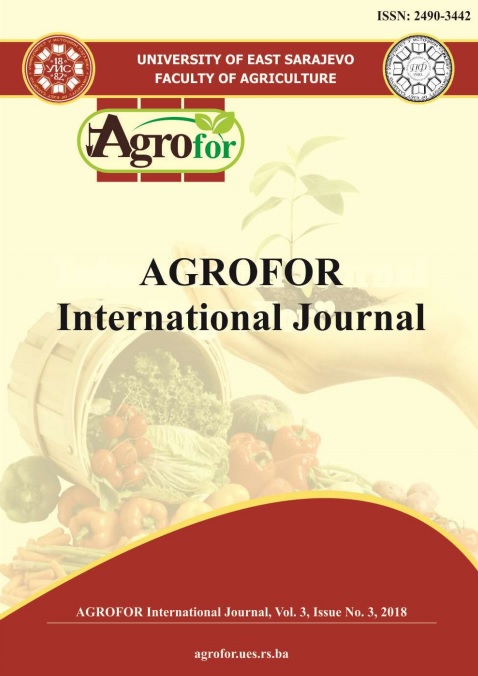ISOLATION, CHARACTERIZATION AND FORMULATION OF ANTAGONISTIC BACTERIA AGAINST FUNGAL PLANT PATHOGENS
DOI:
https://doi.org/10.7251/AGRENG1803080AAbstract
Concerns regarding food safety and the environment have led to reduced use of
agrochemicals and the development of sustainable agriculture. In this context,
biological control of fungal plant pathogens can improve global food availability,
one of the three pillars of food security, by reducing crop losses, particularly for
low-income farmers. Antagonistic bacteria are common soil inhabitants with
potential to be developed into biofungicides for the management of fungal plant
pathogens. In this study, antagonistic bacterium was isolated from the commercial
compost from a Resen factory for compost and screened for its growth inhibition of
fungal pathogens in laboratory tests. The zone of inhibition (mm) was recorded by
measuring the distance between the edges of the growing mycelium and the
antagonistic bacterium. Five replications were maintained for each isolate. Based
on phenotypic characteristics, biochemical tests, and sequence analysis of 16S
rRNA, the antagonistic bacterium was identified as Paenibacillus alvei (strain DZ-
3). The bacterium suppressed the growth of all five tested fungal plant pathogens
(Fusarium oxysporum, Rhizoctonia solani, Alternaria alternata, Botrytis cinerea
and Plasmopara viticola) in in vitro conditions over. The survival of antagonistic
bacterium in peat and talc formulations decreased time at room temperature, but
the populations remained above 108 CFU/g during the 180-day storage period. This
study suggests that this bacterium can be developed and formulated as
biofungicides for minimizing the crop losses caused by fungal plant pathogens and
diseases caused by them.

